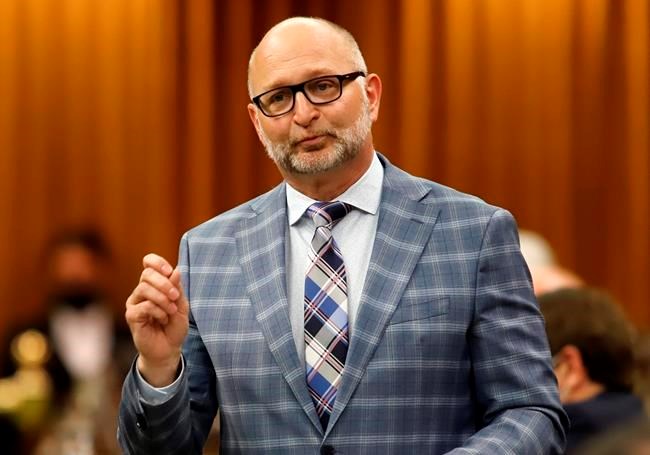OTTAWA — The Liberal government plans to launch consultations this October on the criminal justice system's response to HIV non-disclosure.
Justice Minister David Lametti made the commitment as he met interested parties this week in the lead-up to the International AIDS Conference in Montreal on the weekend.
The consultations will seek input on how to modernize the criminal justice system's response to the non-disclosure of HIV status, in light of growing scientific evidence related to the risk of sexual transmission of HIV, the virus that causes AIDS.
As the law is currently written, people who do not disclose their HIV status before having sex can be prosecuted for aggravated sexual assault, the most serious type of sexual offence in the Criminal Code — even in cases where there is little to no possibility of transmission, no intent to transmit and no actual transmission.
The way the law is enforced is "extremely punitive and overbroad," said India Annamanthadoo, a policy analyst with the HIV Legal Network, noting advocates are aware of more than 200 cases being prosecuted since 1989.
Annamanthadoo said in an interview that the consultation is a good first step by the federal government, but it is not enough.
"We need to act swiftly and urgently," she said. "So what we're hoping is that this consultation is not going to be something that's protracted, but rather something that leads to swift legislative reform."
The Canadian Coalition to Reform HIV Criminalization, of which the HIV Legal Network is a part, said in a statement Wednesday that the government must recognize "we are not starting from scratch."
Over the last five years, the coalition has conducted two national consultations with the HIV community and has identified consensus recommendations for the government to follow.
After the first consultation resulted in a consensus statement in 2017, Justice saąúĽĘ´«Ă˝ referred publicly to the "overcriminalization of HIV" and, two years later, the House of Commons justice committee concluded that the application of criminal law in such cases should be narrowed.
But successive Liberal justice ministers have made no specific commitments.
The coalition's specific legislative recommendations, based on its second consultation, will be outlined in a policy statement it intends to release on Friday as the international AIDS conference gets underway.
saąúĽĘ´«Ă˝ has the dubious reputation of hosting that conference while it remains "a global leader in HIV criminalization," as Annamanthadoo put it, with prosecutions disproportionately affecting Black, Indigenous and LGBTQ Canadians.
The government did not set out a timeline for the consultations beyond stating they will begin in October, adding that more information would be available "in the coming weeks."
This report by The Canadian Press was first published July 27, 2022.
The Canadian Press


